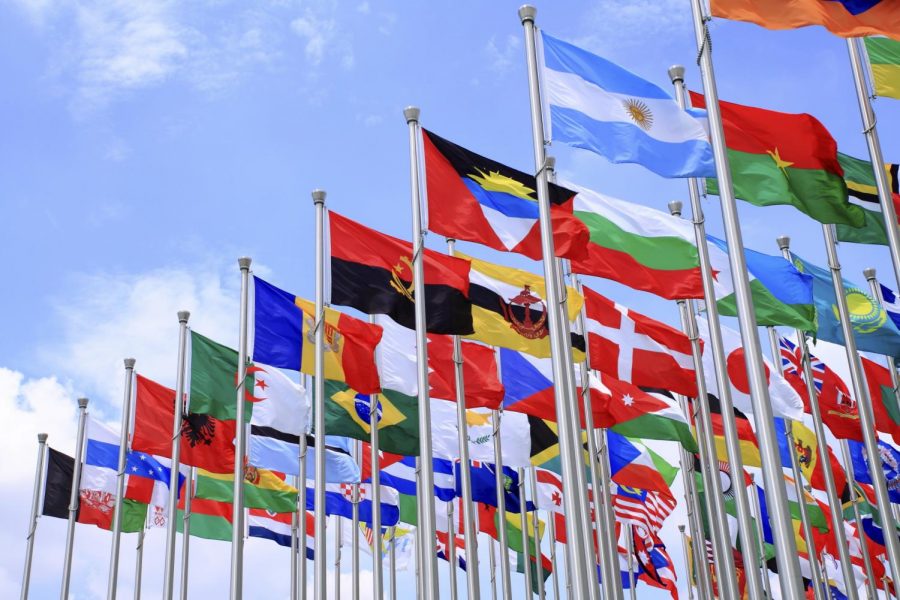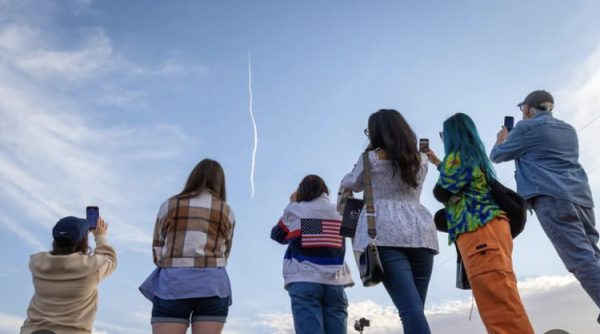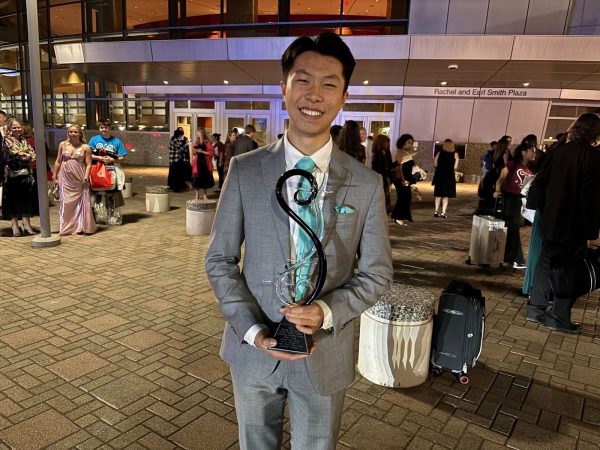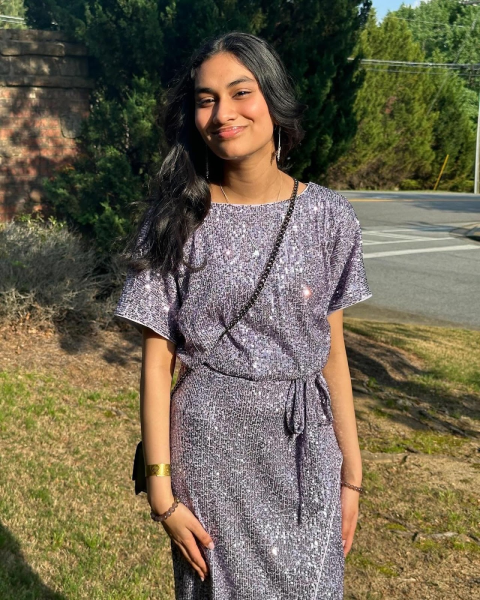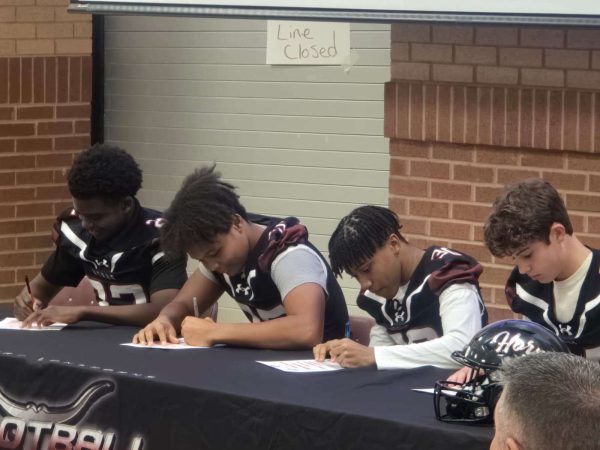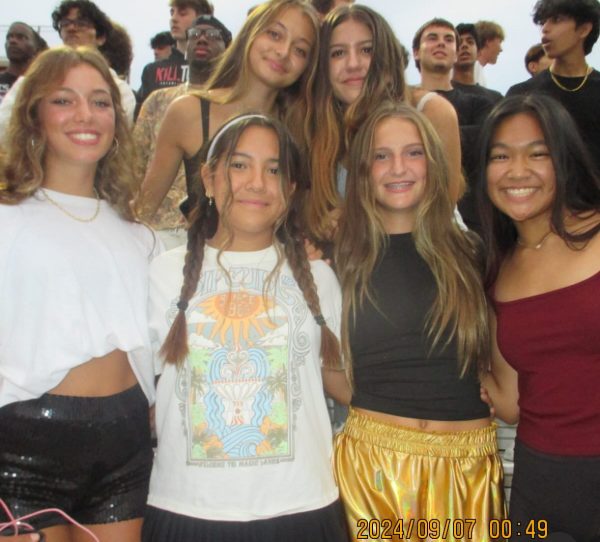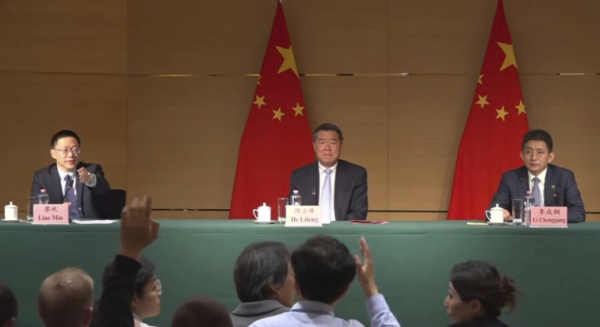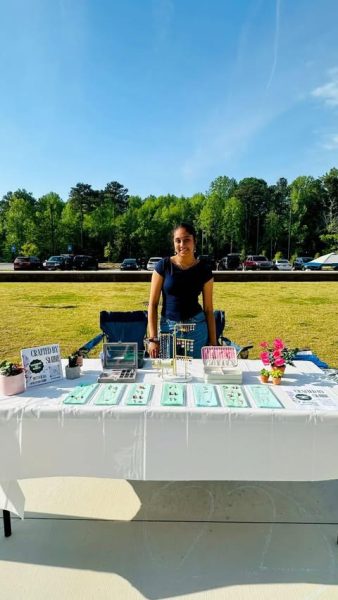One Immigrant’s Perspective of America’s Political Atmosphere
Photo by Penn State , published January 30, 2015 , link to original work: https://www.flickr.com/photos/pennstatelive/16216912657/in/photolist-qH2V9n-qdJXHU-8q9kJt-7zdjsw-bnSDUP-JvnGQz-4yUWDC-7E4Byy-qJnX2F-6ZHSYK-fAk3Dq-6YfwDo-5fTXpk-Pen6Y-okD3sE-ooPVD7-boJHkD-a7jvgQ-ohoqab-gfqStQ-m9aSoo-VzPVws-YVNK7y-hY2ub-5rN6LE-ekQWVP-4yQjVB-fqQUAB-fpvZJN-bowspW-ogqFXU-fyXgwi-9TkX2a-fzczxq-Sq1ZFw-qkMKLn-8zZAPM-TsC7Sd-fkRZTK-aEfUc3-xGQv1e-23So6oc-J5Kup-TGyaRg-5J1Tdy-odPk8r-crsBmh-eekAAW-5ggXXF-9P19p6/ , link to license: https://creativecommons.org/licenses/by-nc-nd/2.0/legalcode , A multitude of different flags on display, representing the large cultural diversity found in the United States.
The current political atmosphere of the United States is one of dissonance and disconnect between Washington politicians and the general American populous. Major news outlets write opinion pieces slamming congress for being ineffectual, the president for being incompetent, or some combination of both, and the public as a whole seems divided along partisan lines. Following recent Donald Trump comments about immigrants from “s***hole countries” and as a government shutdown once again looms ahead (after one took place only a few weeks ago) it is now more important than ever to understand different perspectives on the United States government including the perspective of first generation immigrants. Many first generation immigrants come from completely different political climates and systems and carry messages that are likely to resonate in a seemingly fractured political ecosystem.
John Doe (name changed for anonymity) is a first generation immigrant from India. Born in 1964, John migrated to the United States in 1998 to pursue career opportunities not offered in India. Along with his wife and child, he moved with only $1,000 in his pocket and is now a citizen of the United States of America with a well paying job. He lives in Johns Creek, Georgia. The following interview was taken and translated from Hindi to English and regards the political atmosphere of India in the 70s and 80s.
What do you remember about the political atmosphere on India in the 1970’s?
It was a turbulent time. While I was mainly just studying for my entrance examinations, I remember that my parents would constantly express their outrage about the corruption in Indian politics. There weren’t many ways for teenagers and even adults to get involved in politics and the political turbulence was really just a backdrop to my concentration on learning.
What did corruption in India look like?
Corruption was everywhere and it always felt like there was a disconnect between what the public wanted government to do and what the government was actually doing. While I was a teen, many were pushing for education reform, making Indian standardized testing easier to access and study for. Since the population of India was exploding and the collegiate system was stagnant (not many good new colleges were formed), people would isolate themselves for months in order to study for the exams. The bill got all the way to the floor of the Indian National Congress but was lost as no further public statement was released. I personally regarded it as a failure of our government as the route to college was plagued with inequality. People with ore money could study and go to private schools and
Do you have any personal examples where you experienced corruption in your personal life?
My father once was accused of fraud. He ran a semi- successful farm business where he brought produce from local farmers into the city to sell. The police accused him of stealing produce and used it to extort a bribe from him. He needed to pay the police a share of his profits or else they would arrest him and take his produce.
Were you politically active as a teenager?
No. In India, children often do not get much free time. There is no post secondary education system. Instead, children study for graduate school exams and the top scores go to college. The top engineering schools have nearly impossible tests, so students go to school, study at home for almost 10 hours a day, and usually get little to no sleep.
What do you remember about the stretch of time that Indira Gandhi was the prime minister?
I wasn’t very involved with anything other than school at that point (since her most controversial acts were when I was in middle school) but I remember my parents talking about my future college aspirations in hushed tones as they thought that her rule would substantially reduce college effectiveness because of how she limited freedom of speech.
What is the most glaring difference between America’s and India’s political system?
Here, elections are more based on merit. There are less insider deals and it feels like if a group of people want something done badly enough, it will be done. You see more freedom in all aspects here and presidential races are giant spectacles, letting more voters understand what is going on in their political system. The elections run more smoothly than India’s political system and civil unrest and violence is kept to a minimum in the aftermath of the elections.
Do you still keep an eye on Indian politics?
Of course! My parents live there and India is the largest democracy in the world and is rapidly developing into a world power. The relationship between India and America is crucial for both parties and as a result, I look at both sides, from my parents’ perspectives as Indian citizens and my perspective as an American citizen.
What do you think about Trump and Modi’s relationship. Will it be fruitful for both parties?
Trump has recently pushed India into a treaty that India was not prepared for: to fight terrorism in Pakistan and Afghanistan. While fighting terrorism is definitely the right move, I feel as if this is bad for Indian- American dynamics as it does not feel as if there is mutual respect between Trump and Modi.
Going forward, do you expect to nurture a love for politics in your children?
I will leave it up to them to decide. As a kid, I was never really invested in a political process. Political activism is a choice that people need to make for themselves and while I understand the importance of having a voice, after not having a voice in India for so long, you understand that things in America, a free country are exponentially better than things were for youth during my time in India.
Did your experiences as a youth influence your political state of mind today?
Most definitely. If not for Indira Gandhi, I would not know the value of free speech. If not for Indian corruption, I would not know the value of freedom of government. I would never think growing up that I could merely get on a computer and instantly be plugged into the world of political activism.
According to Doe, in America, people express their outrage over political issues, but that outrage has an outlet. The way that the American political system functions is that ordinary citizens can get involved in the political process. Anyone 35 years of age and born in the United States can run for president and the rules for running for Congress is even lower. Political fragmentation exists only because Americans care so much about their political process. Americans get engaged, lobby, campaign, and so much more. The fragmentation of the American political system is necessary to running a highly effective government that responds to the demands of the people. Intellectual discussion and political disagreement breed political change and activism, and people from different cultures are really able to bring that aspect of American politics to the forefront.
While American politics are plagued with political disintegration – the House barely elected a Speaker in 2015 and the main Republican frontrunner in the 2016 election didn’t even identify himself consistently as a Republican – many immigrants have faith that that no matter how hopeless the situation or how “broken” American politics seems, the American public knows enough and cares enough to fix it. Immigrants have faith that the American political system is made in such a way that activism can make a difference. If you want to make a difference in your US political system, contact your representatives Rob Woodall in the House of Representatives and Johnny Isakson and David Perdue in the Senate.
Your donation will help support The Lambert Post, Lambert High Schools student-run newspaper! Your contribution will allow us to purchase equipment and cover website hosting costs.



